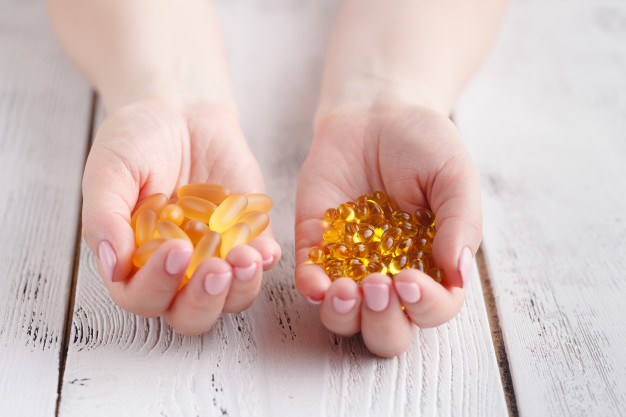Wondering about the best multivitamin for women at every life stage? Multivitamins are now regarded as essential components of our daily lives, particularly when it comes to plugging nutritional gaps and deficiencies that cannot be overcome by our daily diets. For instance, a study highlighted how only 10% of American citizens were consuming ample fruits and vegetables while also facing deficiencies related to calcium, dietary fiber, magnesium, Omega 3s, and potassium according to the Centres for Disease Control (CDC). US citizens also have deficiencies in essential vitamins like D, A, C, and E as per the Federal Dietary Guidelines for Americans 2015-2020.
Of course, you should scale up your intake of antioxidants, fiber, Omega 3 fatty acids, and minerals by increasing consumption of plant protein, vegetables, unsweetened dairy products, fruits, whole grains, seeds, nuts, beans, and legumes. If you’re comfortable eating seafood, try increasing intake suitably for getting enough Omega 3s and Vitamin D. However, whenever you require added help in making up nutritional deficiencies, multivitamins may be really helpful.
Choosing the best multivitamin for women
You should follow these tips while selecting the best multivitamin for women:
- Do your research- Make sure that supplements are following the Good Manufacturing Practices of the FSSAI in India for instance or similar certifications in any other country. Look for a reputed third-party testing agency behind the product as well.
- Consult your medical practitioner- Have a word with your doctor on the supplement that you are considering and whether it will be good for you. Your doctor will help you work out the right time for consuming the supplement while factoring in your medication and other issues.
- Do not lay off your daily diet- Supplements will not help you greatly unless you have a major nutrient deficiency. Do not lay off your daily dietary guidelines; try and consume nutrients in balanced proportions.
Best multivitamin for women across diverse stages
The best multivitamin for old age may not necessarily be the same as the best one for a middle-aged or younger woman. The major differentiator between general supplements for women and those geared more towards women above the age of 50 is that they have a little more iron and slightly lower Vitamin D and calcium. Iron holds responsibility for the passage of oxygen through the blood, thereby making it imperative for energy metabolism, particularly if you are indulging in high-intensity activity. Other aspects may impact nutrients that you require including whether you are in the postmenopausal or peri-menopausal stage, whether you are lactating, vegan, or vegetarian.
If you are a woman who requires a little extra calcium and iron alike, you will ideally be consuming iron and calcium + Vitamin D supplements separately at varying times of each day. This is because calcium can otherwise hinder iron absorption in the GI tract. Vitamin C, on the other hand, will enable better absorption of iron in the form of food. As a result, you should consume more citrus, tomatoes, leafy vegetables, and broccoli for maximizing the same.
Best multivitamins for old age- Women over 50
The best multivitamin for old age or those above 50 should ideally contain calcium. This is because calcium is majorly stored in the bones and is required for healthy cellular functioning across the glands, muscles, and nerves. If you are above 50, you will require slightly lower iron although your Vitamin D and calcium intake should increase simultaneously. Vitamin D will help in the maintenance of bone mineral density while also helping in the management of calcium levels. It can draw bone calcium for scaling up blood calcium levels while enabling the absorption of calcium that is consumed in the GI tract and recycling it through the kidneys if you require more.
As a result, the best multivitamin for women above 50 will naturally be a tested and approved supplement that contains Vitamin D and calcium in requisite amounts. Do consult your practitioner for guidance in this regard. You may take a supplement that contains Vitamin D since it becomes tougher to get enough of it from sunlight with advancing age.
Best multivitamin choices at the prenatal stage
The major nutrients to watch out for in the prenatal stage will be folic acid (400-600 mcg), DHA/EPA (250 mg per day), iodine (150 mg), and choline (200-600 mg). You should ideally look out for a multivitamin containing all these essential ingredients at the prenatal stage. These are nutrients recommended by the American Academy of Pediatrics. The nutrient most synonymous with pregnancy is folic acid since it combats risks of fetal brain defects in the very first trimester itself. Several supplements may sometimes have higher folic acid than what is actually required. Folate is also contained in whole grains and grain-based items like bread, cereal, or rice.
Prenatal vitamins will also have higher choline which is essential for proper fetal brain development and may combat defects at birth. Choline is contained in eggs and a couple of big ones may be enough on a daily basis. DHA and EPA are vital Omega 3 fatty acids and help the immune system to function normally while lowering chronic disease risks. They are contained in several oils, seeds, soy, and nuts. They can also be found in seafood such as herring, salmon, and sardines among others. You should ideally consume 2-3 seafood servings every week or take an algal oil supplement if you are not too keen on seafood. You should look for a regular multivitamin at this stage with added DHA/EPA or choline.
Remember that you should always consult your doctor if you are considering any multivitamins during pregnancy. This should not be neglected by all means. Younger women with specific deficiencies in vitamins may consider taking supplements on the advice of their doctors/medical practitioners. With the right multivitamin supplement, women of all ages/stages in life can get the necessary support for good health and wellbeing in future years. Choose wisely and always do your homework before buying.










